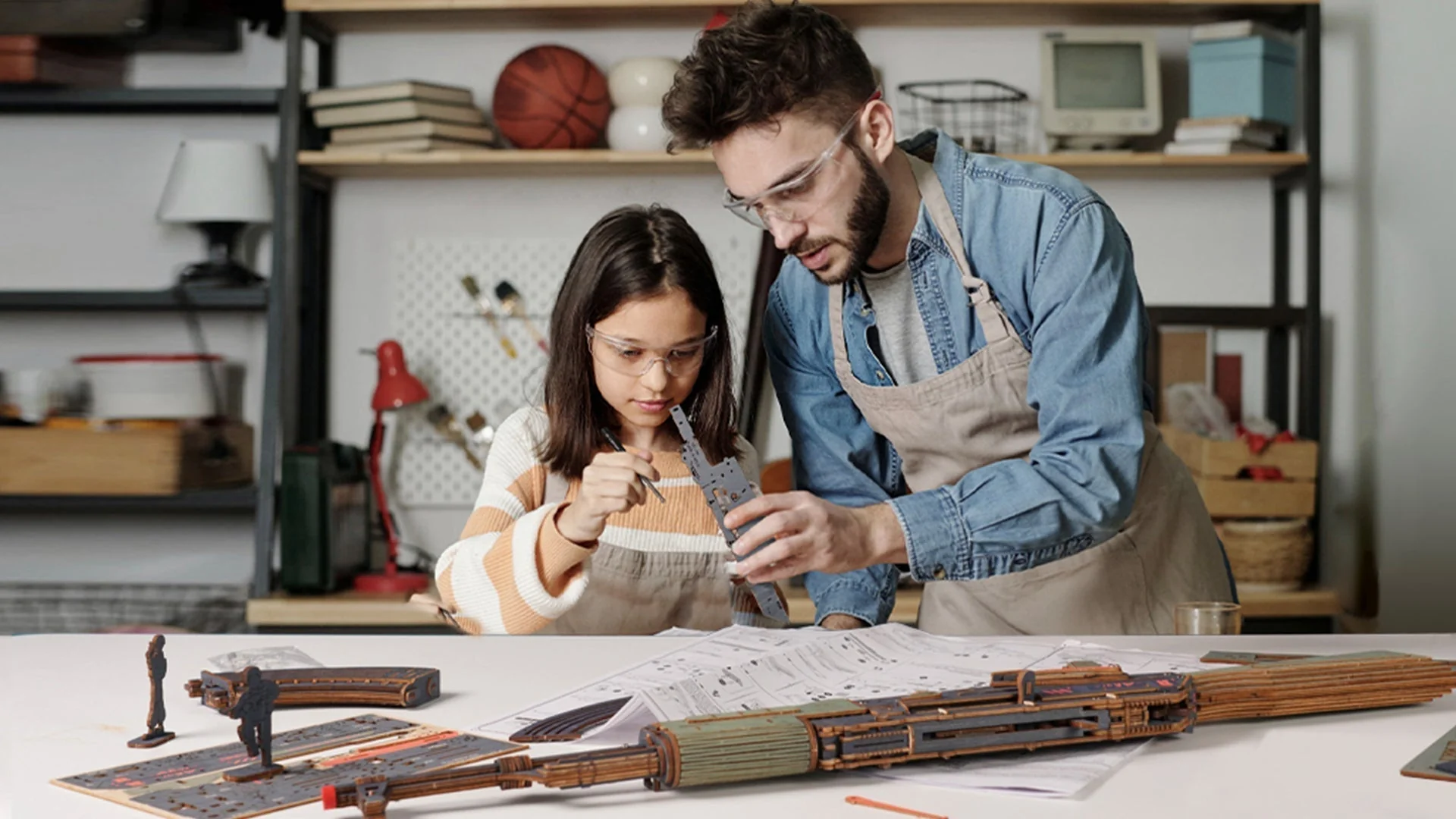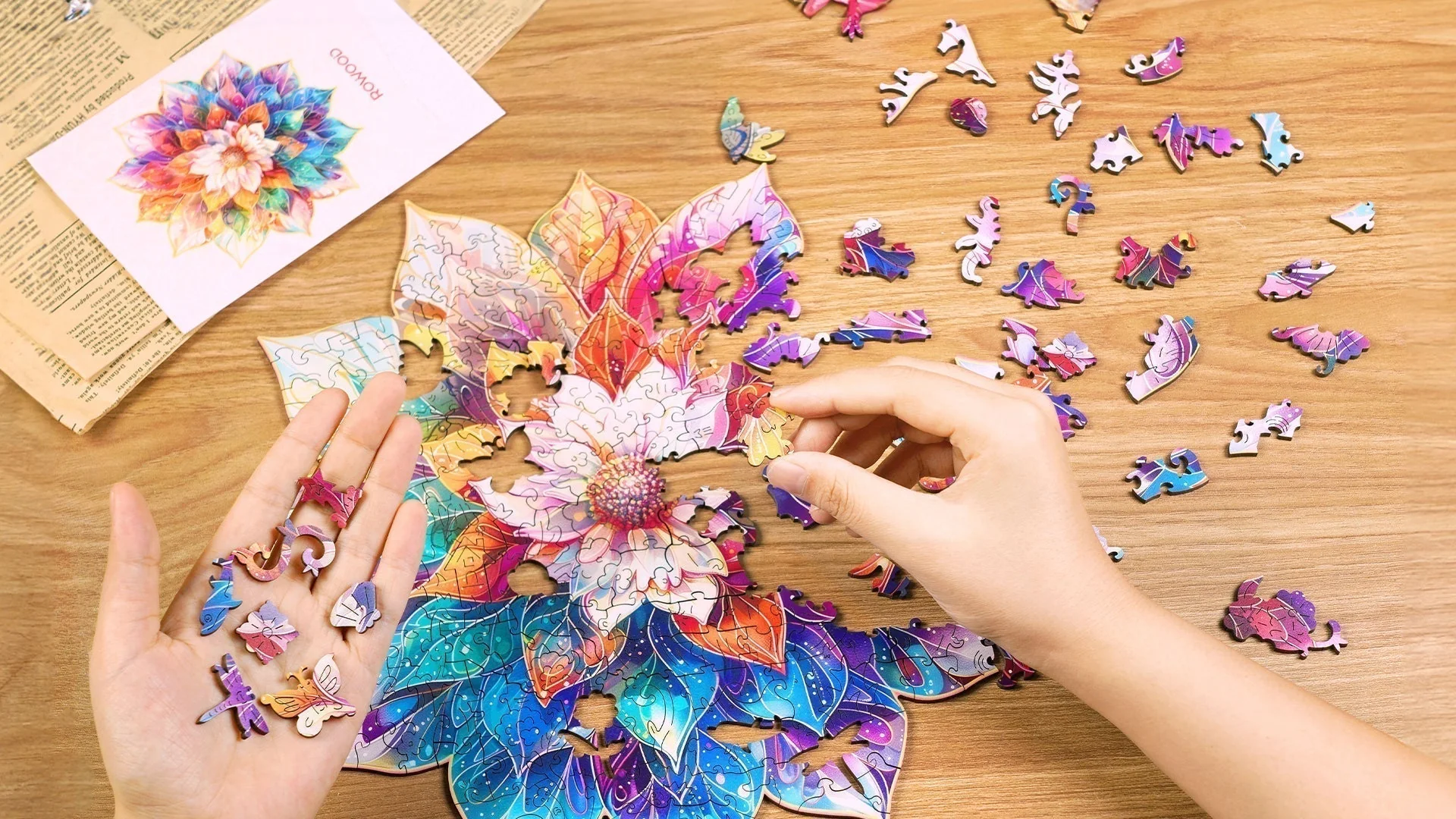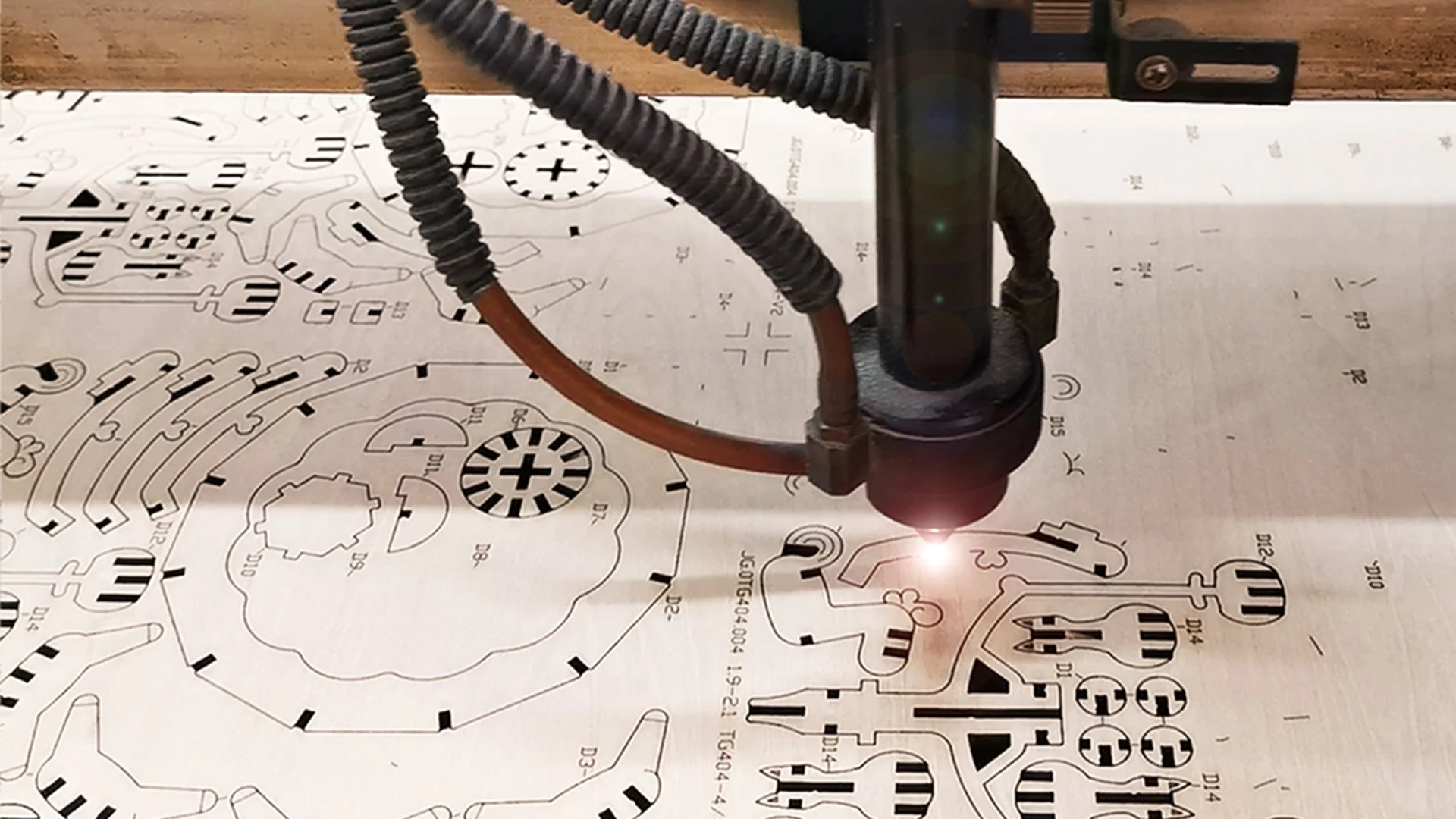Due to international shipping, all products sold on Robotimeonline.com do not include glue. While we have made every effort to design our DIY kits without the need for glue, certain products like some miniature houses may still require glue during the assembly process. You can read this article to learn about the glue that is most suitable for your DIY miniature house in terms of materials and different circumstances.

Choosing the Best Glue for Miniature Houses
Choosing the best glue for miniature houses can be a daunting job given that there’s so much variety to choose from.
The most important thing you need to remember is that different jobs require different glues. This means that there’s no single best glue for miniatures. Instead, it all comes down to the material you’re trying to stick together and whether you’re trying to get a temporary fix or a permanent hold.
If you’re wondering what glue is suitable for Rolife miniature kits, the answer depends on what materials you're working with:
- White Latex Glue for general assembly
- Mod Podge for paper
- Wood Glue for walls and larger wooden pieces
- UV Glue for wirework and holding parts while other glues set
- Hot Metal Glue for fixing wires and insulating joints
- Super Glue for small furniture requiring an instant hold
Let’s take a closer look at the pros and cons of each type of glue, along with some tips on using them.
Overview of Glue Types
White Latex Glue(Polyvinyl acetate)

White Latex Glue is suitable for all Rolife kits. Its primary material is rubber, which forms a strong adhesive after drying. White glue is commonly used for bonding wood, paper, leather, and other materials.
Pros
- Non-toxic, with strong adhesion and flexibility
- Suitable for wood, paper, leather, and other materials
- Moderate stickiness and easy to remove
Cons
- Not ideal for bonding harder materials.
Usage Tip
Apply a thin layer to avoid excessive drying time and make it easier to clean up. White glue remains slightly flexible after drying, which is beneficial for materials that expand or contract slightly over time.
Usage Tip
Sand the wood before applying the glue to ensure a smooth surface. Be cautious with drips, as they’re difficult to remove after drying. A precision applicator can help control glue flow.
Wood Glue

Wood glue should be your go-to when assembling the wooden main structure of your miniature house, especially if you’re using ⅜” or thicker wood. If you’re crafting on a budget, you can use tacky glue as a substitute but only for the thinner plywood diecuts of your miniature.
There are, however, a couple of things to watch out for when using wood glue. First, it dries yellow. You have to be careful when applying it unless you’re planning to cover it up later. Second, you have to watch out for drips because they’re next to impossible to remove once dried. The best way to do this is by sanding but it could damage the finished wood.
Pros
- Strongly and permanently holds together wooden parts
- Best glue for your dollhouse’s main structure
Cons
- Dries yellow
- Drips that have dried are extremely hard to remove
Tacky Glue
Tacky glue is the jack of all trades of glues. It can bond plastic, wood, fabric, paper, glass, and painted surfaces quite well. Plus, unlike superglue, it doesn’t get brittle over time. So, no breaking apart if it accidentally gets knocked off the shelf. It also dries clear quite quickly, making it a great choice if you’re planning to paint the surface over or want to maintain the wood’s natural look.
Overall, tacky glue is one of the best glue for miniature house kits because of its versatility and cheap price.
Pros:
- Dries clear fast
- Doesn’t dry out over time
- Versatile and cheap
- Bonds most materials pretty well
Cons:
- Not suitable for thick wooden pieces
Usage Tip
Use a plastic card or fine brush to apply an even, thin layer for smaller or more delicate parts.
Super Glue

Cyanoacrylate, better known as super glue or instant glue, is a solvent-based adhesive that only requires a teeny weeny amount to make a strong bond. It’s the best glue for small applications where you need a quick dry. No need for clamps or tape to keep the pieces in places.
We’re talking 15 to 45 seconds dry time, super indeed! Of course, this ultra fast dry time is a double-edged sword, since this can spell disaster if you make a mistake.
If you’re planning to use it on glass, it’s a good idea to test it first because, depending on the brand, it can set clear or a little cloudy. Also, as mentioned before, super glue gets brittle over time, making the bond weaker.
Pros:
- Almost instantaneous dry time
- Extremely strong hold
- Great for small applications
- Works for most materials except some types of plastic
Cons:
- Bond goes weak over time
- Not a lot of room for mistakes
Usage Tip
Always dry fit pieces before using super glue. Test it on glass or plastic to check for cloudiness, as some brands may leave a visible residue.
Paste
Paste is a classic favorite among miniature builders. This water-based adhesive is odor-free and non-toxic. It’s the best glue for miniatures, particularly for the wallpaper, carpet, ceiling paper, and flooring. It’s transparent once dry and doesn’t curl nor discolor wallpaper.
Thick and spreadable, you can adjust its consistency by adding a few drops of hot water at a time. Paste is also slow-setting and repositionable. You can even wash it off with some soap and water if you get it on your hands. Overall, it’s one of our favorite adhesives because it gives you a lot of room for errors.
Pros:
- Cleans off with water
- Doesn’t wrinkle nor discolor wallpaper
- Transparent once dry
- Generous drying time
Cons:
- Can be messy to use
Usage Tip
For wallpapering, apply the paste in a thin, even layer using a brush. Smooth out the paper from the center to the edges to avoid air bubbles.
Plastic Glue(Solvent cement)

Plastic glue is the key if you’re trying to glue together a type of plastic that even the mighty super glue can’t handle. Also known as plastic cement, it comes with a precision tip and will hold your plastic pieces together for eternity. It isn’t as fast-drying as super glue, however, and will remain flexible enough for up to a minute in case it needs repositioning.
Pros:
- Best glue for miniatures with mostly plastic pieces
- Dries relatively fast with some room for adjustments
- Comes with a precision tip
Cons:
- Extremely strong smell
Usage Tip
For wallpapering, apply the paste in a thin, even layer using a brush. Smooth out the paper from the center to the edges to avoid air bubbles.
Spray Glue
Spray glue is a versatile adhesive that is sprayed onto surfaces, providing even coverage. It is commonly used in craft projects, upholstery, and lightweight material bonding like paper, foam, fabric, and plastic.
Pros
- Easy to apply evenly across large surfaces
- Fast drying and provides a temporary or permanent bond
- Works well with lightweight materials like foam, fabric, paper, and plastics
Cons
- Not as strong for heavier materials or long-term use
- Can be difficult to control on smaller areas
- Potentially messy and requires ventilation due to fumes
Usage Tip
Spray in short bursts to avoid over-application, and use in a well-ventilated area to minimize fumes.
Fabric Glue
Fabric glue is specifically designed for bonding fabrics and textiles. It can create a flexible, washable bond between cloth materials, making it a great alternative to sewing in many cases.
Pros
- Strong, flexible bond that withstands washing
- Dries clear and remains flexible, making it suitable for fabric-related projects
- Saves time compared to sewing and is easy to use
Cons
- May not be ideal for heavier fabrics or non-fabric materials
- Some fabric glues may become brittle over time if frequently washed
- Longer drying time compared to some other adhesives
Usage Tip
Use sparingly and allow ample drying time before handling. Avoid using on heavier fabrics that may require a stronger adhesive.
Additional Tips for Miniature House Assembly
- Avoid Hot Glue: While hot glue guns are common, they are generally not recommended for miniature house assembly because the adhesive is weak and can leave unsightly gaps.
- Control Glue Application: Use precision tips, fine brushes, or plastic cards to apply glue in hard-to-reach areas or for small details.
- Clean as You Go: Keep a clean rag or paper towels nearby to clean up excess glue before it dries.
- Dry Fitting: Always dry fit parts before applying glue to ensure they fit properly and don’t need adjustments.
- Wallpaper Tips: Too much adhesive can cause wallpaper to wrinkle. Use a plastic card to spread glue evenly, and apply gentle pressure when smoothing the paper to avoid tearing.
There you have it - the best glue for miniature houses depending on the material and situation. These winners will make your life much easier when it comes to miniature assembly and will hold your pieces together for as long or as short as you want them to.

















Leave a comment
This site is protected by hCaptcha and the hCaptcha Privacy Policy and Terms of Service apply.